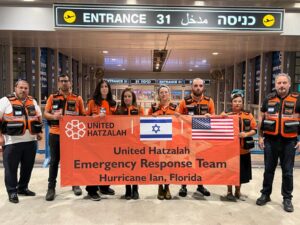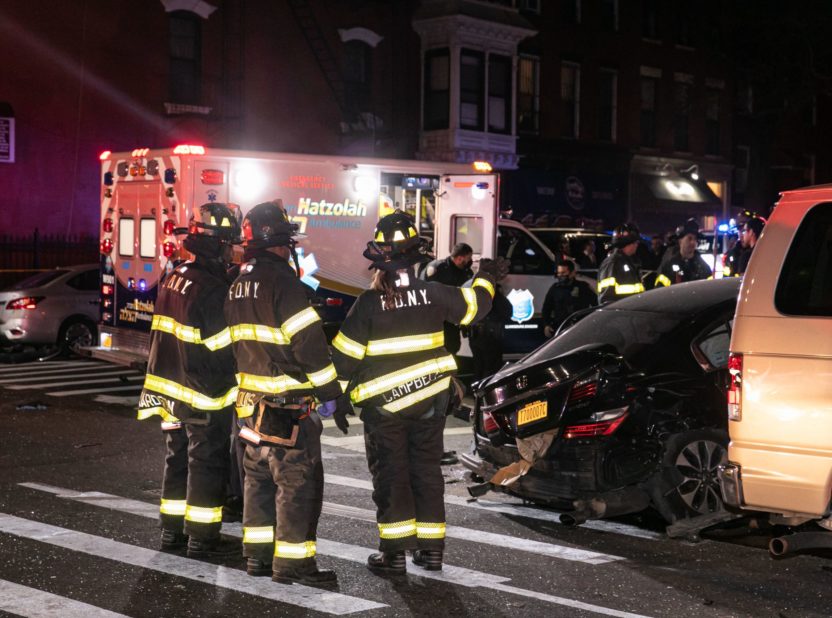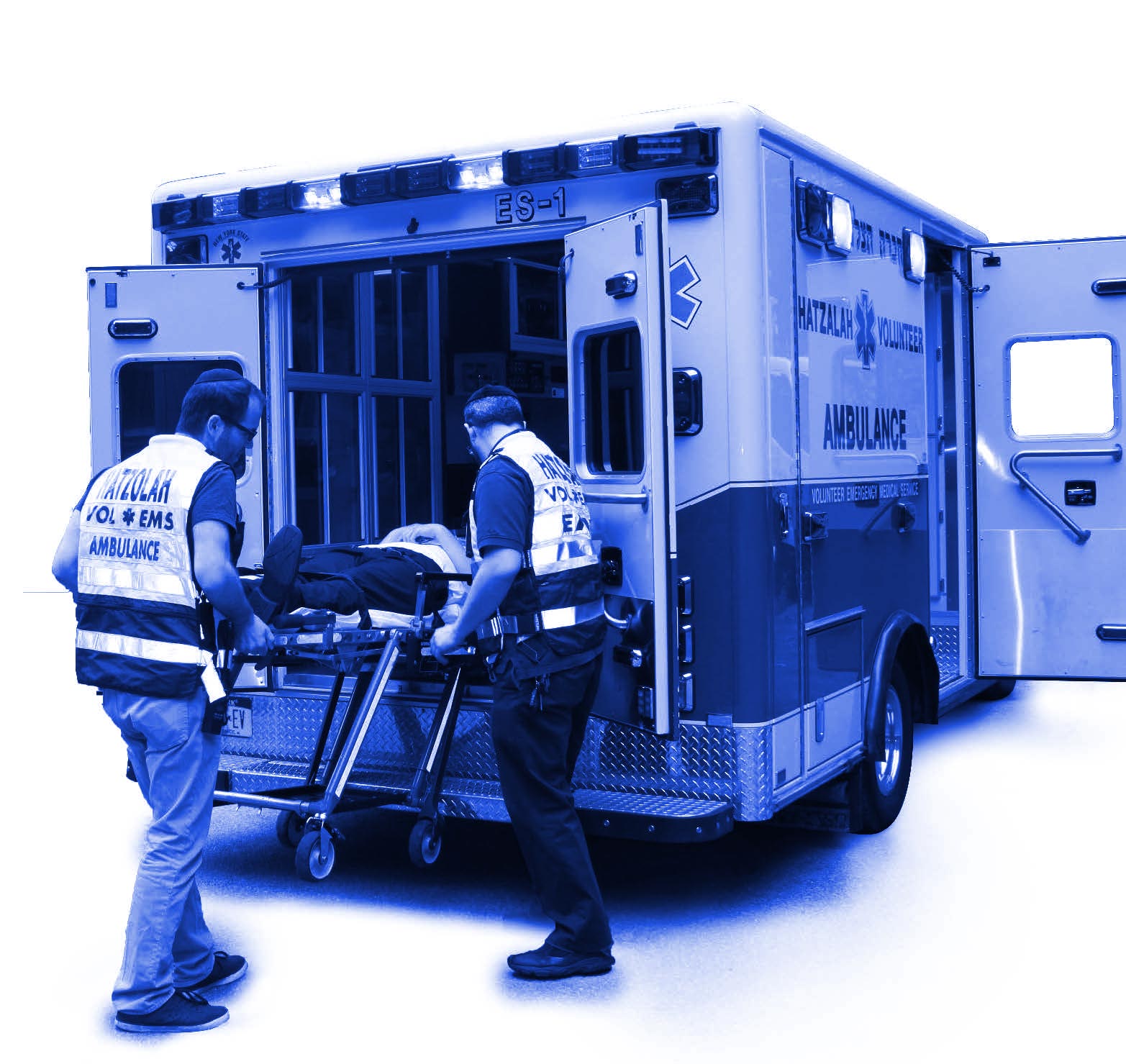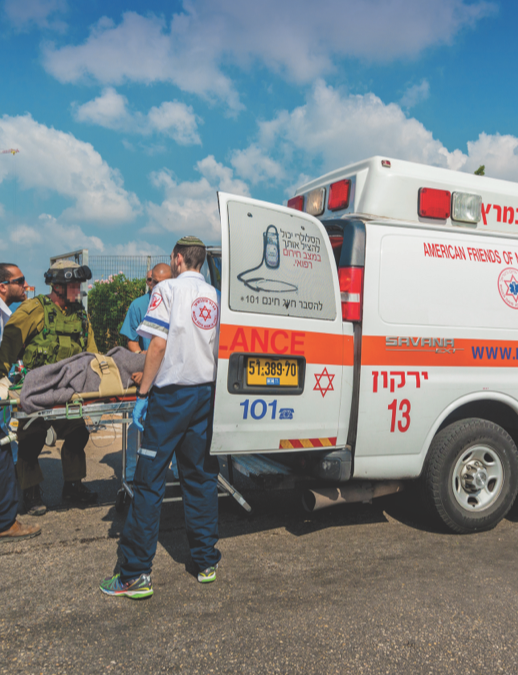Hatzolah is a volunteer emergency medical service (EMS) organization that provides pre-hospital care and transport to patients in medical emergencies. Hatzolah was founded in New York City in the 1960s by a group of Jewish individuals who wanted to ensure that emergency medical services were available to their community. The organization has since grown to include chapters in several other cities in the United States and other countries worldwide.
Hatzolah members are trained in emergency medical procedures and use specialized equipment and vehicles to respond to community emergencies. They work closely with local EMS providers, but Hatzolah often provides a more rapid response due to their proximity and familiarity with the local area. Hatzolah also strongly emphasizes cultural sensitivity and strives to provide care that respects the cultural and religious traditions of the patients they serve.
Is Hatzolah the largest volunteer ambulance service?

Hatzolah is one of the largest volunteer ambulance services in the world and is undoubtedly one of the largest in the United States. However, it is difficult to determine whether Hatzolah is the largest volunteer ambulance service, as many similar organizations operate in different parts of the world. Some other extensive volunteer ambulance services include St John Ambulance in the United Kingdom, United Hatzalah in Israel, and Ambulance Wish Foundation in the Netherlands. However, regardless of its exact ranking, Hatzolah is widely recognized as a highly effective and valuable resource for emergency medical services in the communities it serves.
What is the History of Hatzolah?
Hatzolah was founded in the late 1960s by a group of Jewish individuals in Brooklyn, New York, concerned about the lack of emergency medical services available to their community. At the time, the standard ambulance services in the area were not always responsive to the needs of the Jewish community, and there were cultural and religious sensitivities that were not always taken into account.
To address this need, a group of volunteers with medical training began to organize themselves to provide emergency medical services within the Jewish community. They called themselves Hatzolah, a Hebrew word meaning “rescue” or “relief.” The first Hatzolah group consisted of a handful of volunteers who used their cars and radios to respond to emergency calls.
Over time, Hatzolah grew and expanded, adding more volunteers and sophisticated equipment. They began to develop relationships with local hospitals and EMS providers and worked to ensure that their services were integrated into the broader emergency medical system. Today, Hatzolah operates in several cities in the United States and other countries worldwide, including Israel, Canada, and the United Kingdom.
Throughout its history, Hatzolah has remained true to its mission of providing emergency medical services that are responsive to the cultural and religious needs of the communities it serves. The organization continues to be staffed entirely by volunteers dedicated to providing high-quality medical care to those in need.
What type of Operations does Hatzolah provide?
Hatzolah primarily provides emergency medical services (EMS) to patients in medical emergencies. They respond to various medical situations, including cardiac arrests, strokes, severe injuries, and other life-threatening conditions. Hatzolah operates using a tiered response system, which means that they dispatch different levels of care based on the severity of the situation.
Hatzolah volunteers are trained in advanced life support techniques and carry specialized equipment and medications to provide pre-hospital care to patients. They work closely with local EMS providers, but Hatzolah can often provide a more rapid response due to their proximity and familiarity with the local area.
In addition to their EMS work, Hatzolah provides other services to their communities. For example, they may offer health education programs, blood drives, and other community outreach efforts. They may also support individuals and families during times of crisis or loss.
What is the average Response time for Hatzalah?
The average Hatzolah response time can vary depending on several factors, including the location of the call, the nature of the emergency, and the time of day or day of the week. However, Hatzolah generally strives to respond rapidly to emergency calls in their communities.
Because Hatzolah operates using a tiered response system, the response time can also depend on the needed level of care. For example, a call for basic life support may be responded to more quickly than for advanced life support, which may require a highly trained and specialized team.
In general, Hatzolah aims to respond to emergency calls within a few minutes of receiving the call.
What type of medical equipment does Hatzolah use?
Hatzolah uses various medical equipment to provide emergency medical services and patient transport. Some of the most common types of equipment used by Hatzolah volunteers include:
- Ambulances and Emergency Vehicles: Hatzolah operates a fleet of ambulances and other emergency vehicles equipped with advanced medical equipment, such as stretchers, oxygen tanks, defibrillators, and monitoring systems.
- Personal Protective Equipment: Hatzolah volunteers wear personal protective equipment, such as gloves, masks, and gowns, to protect themselves and patients from the spread of infectious diseases.
- Airway Management Equipment: Hatzolah volunteers are trained to manage patients’ airways in emergencies and may use equipment such as endotracheal tubes, laryngeal mask airways, and bag-valve-mask resuscitators to ensure adequate ventilation.
- Medications: Hatzolah volunteers carry a range of medicines to treat various medical conditions, such as epinephrine for allergic reactions, nitroglycerin for chest pain, and aspirin for heart attacks.
- Diagnostic Tools: Hatzolah volunteers may use various diagnostic tools to assess patients’ conditions and provide appropriate treatment. This can include
What type of medical responses do they respond to?

Source https://hatzalah.org/training-equipment/
Hatzolah responds to a wide range of medical emergencies and provides a variety of medical responses to patients. Some of the most common types of medical responses that Hatzolah delivers include:
- Emergency Medical Services: Hatzolah provides emergency medical services to patients experiencing a medical emergency. This can include treating patients for heart attacks, strokes, allergic reactions, and traumatic injuries.
- Transport Services: Hatzolah provides transport services to patients who require transportation to a hospital or other medical facility for further treatment. This can include transporting patients by ambulance or arranging for different modes of transportation, such as helicopters or specialty transport vehicles.
- Community Health Services: Hatzolah provides various community health services to support public health and safety. This can include providing health education and awareness programs, conducting health screenings, and offering first aid and CPR training.
- Disaster Response Services: Hatzolah provides disaster response services in natural disasters, accidents, or other emergencies requiring a coordinated response. This can include providing medical support to affected communities, assisting with search and rescue efforts, and providing supplies and equipment to support emergency response efforts.
What is a life-threatening emergency?

Source https://www.hatzolahofla.org/
A life-threatening emergency is a situation that poses an immediate risk to a person’s health or safety and requires close medical attention to prevent serious injury, disability, or death. Examples of life-threatening emergencies can include:
- Cardiac Arrest: When a person’s heart stops beating, cutting off the supply of oxygen to their body and brain.
- Severe Allergic Reaction: A reaction to an allergen that can cause difficulty breathing, swelling, and other symptoms that can be life-threatening.
- Severe Bleeding: When a person is bleeding heavily from a wound and may risk losing too much blood.
- Traumatic Injury: A severe injury, such as a head injury, spinal injury, or significant burn, that requires immediate medical attention to prevent further damage.
- Respiratory Distress: Difficulty breathing or shortness of breath, which can be caused by various medical conditions, including asthma, pneumonia, or heart failure.
Community Involvement and Hatzolah

Source http://leshatzalah.org/
Community involvement is a critical component of Hatzolah’s operations. As a volunteer organization, Hatzolah relies on the support and participation of the communities it serves to carry out its mission effectively.
One way that Hatzolah involves the community is through its recruitment and training programs. Hatzolah recruits volunteers from within the local community and provides training and certification programs to help them develop the skills they need to provide emergency medical services. By involving community members in this way, Hatzolah can build a robust and local network of skilled volunteers who can respond to emergencies quickly and effectively.
Hatzolah also works closely with community leaders, organizations, and institutions to ensure that its services are responsive to the cultural and religious needs of the people it serves. This may include providing education and training on cultural sensitivity and appropriate care or developing partnerships with local synagogues, schools, and other organizations to promote health and wellness.
In addition to its core EMS work, Hatzolah engages in various community outreach and support activities. For example, Hatzolah may assist families in crisis, support patients and families undergoing medical treatment, or organize blood drives and other health-related events.
Overall, community involvement is a central part of Hatzolah’s mission and operations, and the organization works tirelessly to build strong, supportive relationships with the communities it serves.
What does it cost to call Hatzolah?
There is no cost to call Hatzolah for emergency medical services. Hatzolah is a volunteer-based emergency medical service provider funded by donations from the communities it serves. Its services are generally offered free of charge to patients in need.
What Interaction with other agencies does Hatzolah have?
Hatzolah is an emergency medical service (EMS) provider that works closely with various other agencies and organizations to ensure patients receive the best care and support.
One important Interaction that Hatzolah has is with local 911 dispatch centers. When someone calls Hatzolah for emergency medical services, the call is typically routed through the local 911 dispatch center, which coordinates the response of Hatzolah and other EMS providers in the area. This collaboration helps ensure that patients receive the fastest possible response to their emergency calls and that the appropriate resources are deployed to the scene.
Hatzolah also works closely with local hospitals and medical facilities to ensure that patients receive continuity of care after they have been treated and transported. This may involve coordinating with hospital staff to provide patient information and updates or arranging follow-up care and appointments with medical specialists.
In addition to these core interactions, Hatzolah may collaborate with various other agencies and organizations depending on the specific needs of the patients and communities it serves. For example, Hatzolah may work with local law enforcement agencies to provide support during emergencies or coordinate disaster response efforts with other community organizations and government agencies.
What is Magen David Adom?

Magen David Adom (MDA) is Israel’s national emergency medical, disaster, ambulance, and blood bank service. It is similar in many ways to Hatzolah, but on a larger scale and with a broader range of responsibilities.
MDA was founded in 1930 as a branch of the International Red Cross and has since grown to become Israel’s most prominent medical organization. Its mission is to provide emergency medical services, ambulance transport, and blood products to people in need across Israel, regardless of their religion, ethnicity, or political affiliation.
In addition to its core EMS work, MDA operates various other programs and services, including first aid training and education, emergency response teams for large-scale disasters and incidents, and a national blood service that collects and distributes blood products to hospitals and medical facilities throughout the country.
MDA is staffed by a combination of professional medical personnel and trained volunteers and operates more than 1,200 ambulances and other emergency vehicles across Israel. It is funded through various government support, private donations, and service fees and is recognized as a critical component of Israel’s national emergency response infrastructure.
What is Ezras Nashim?
Ezras Nashim is an all-female volunteer ambulance service that operates in the Orthodox Jewish community in New York City. It was founded in 2012 in response to a need for culturally-sensitive and gender-appropriate emergency medical services for Orthodox Jewish women.
In the Orthodox Jewish tradition, there are certain circumstances in which women are preferred to receive medical care from other women. However, in many cases, there were no female EMS providers available to respond to emergency calls, creating challenges for women needing medical assistance.
Ezras Nashim seeks to address this gap by providing a dedicated all-female EMS service staffed by trained female EMTs and paramedics. The organization collaborates closely with local Hatzolah chapters and other EMS providers and can respond to emergency calls quickly and effectively.
In addition to its EMS work, Ezras Nashim provides education and training programs for women interested in becoming EMTs or paramedics and advocates for greater awareness and understanding of the unique needs and challenges Orthodox Jewish women face in accessing medical care.
Ezras Nashim is a pioneering organization addressing a critical gap in emergency medical services. It significantly contributes to the health and well-being of the Orthodox Jewish community in New York City.
Some Notable periods of Hatzolah
Hatzolah has a rich history that spans several decades and includes many notable periods of growth and development. Some of the most significant periods in the history of Hatzolah include:
- Formation and Early Growth: Hatzolah was founded in the late 1960s by a group of volunteers in the Williamsburg neighborhood of Brooklyn, New York. The organization grew rapidly in the following years, expanding to other parts of Brooklyn and eventually to other Jewish communities in the New York City area.
- Professionalization and Standardization: In the 1980s and 1990s, Hatzolah began to professionalize its operations and establish standard operating procedures to ensure consistency and quality of care. This included investing in training and equipment for its volunteers and implementing new technologies and protocols for responding to emergencies.
- National and International Expansion: In the 2000s and 2010s, Hatzolah expanded beyond its New York City roots and established chapters in other parts of the United States and worldwide. Today, Hatzolah has over 50 branches worldwide, including in Israel, Canada, and Europe.
- Response to Major Emergencies: Over the years, Hatzolah has responded to many significant emergencies and disasters, including the 9/11 terrorist attacks in New York City and Hurricane Sandy in 2012. In each case, Hatzolah was critical in providing emergency medical services and support to affected communities.
- Advocacy and Community Outreach: In recent years, Hatzolah has become increasingly involved in advocacy and community outreach efforts, raising awareness about the importance of emergency preparedness and supporting initiatives to improve public health and safety in its communities.
If you’re asking “what is Hatzolah?” – they are a highly trained volunteer emergency medical service that serves their local Jewish communities. Discover more now.
Recommend0 recommendationsPublished in Opinion
Responses